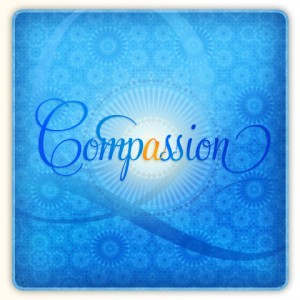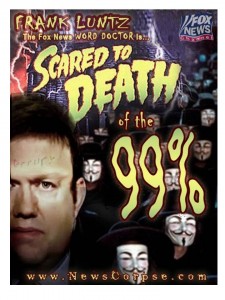A strange new story line about choice has emerged. This story claims that the discussion of choice, birth control, and women’s health is just not that important, certainly not in light of topics like employment or the economy. Really? The life, health, and freedoms of women — or half the population of the country — should be relegated to the sidelines or the backseat in favor of more important topics?
We need to look at the heart-breaking, painful, or distressing circumstances behind many women’s choice for abortion in order to approach this topic with the integrity it deserves. These circumstances center on the question of women’s health — which ranges from emotional health to reproductive capacity and the life of the mother. At the most dangerous end of the spectrum, women die as a result of pregnancy. We have made huge strides in reducing maternal mortality due to childbirth and pregnancy over the past century. However, a recent report confirms that the leading causes of death for young girls between thirteen and nineteen in developing and middle income countries remain pregnancy and childbirth. Strict anti-choice laws affect women’s health and lives.
Recently, a thirty-one year old married woman died due to complications from a miscarriage in Ireland. Although she was clearly miscarrying when she checked into the hospital, she endured three days of suffering when the Catholic, anti-choice hospital refused her and her husband’s request to terminate the ill-fated pregnancy. She miscarried and then died shortly after, succumbing to blood poisoning.
Several months ago a young, sixteen year old girl in the Dominican Republic died after authorities denied her chemotherapy because of her early pregnancy. The laws there are strictly anti-abortion even in the case of a woman’s life. Although the girl’s mother begged the doctors to give her daughter the medicine she needed to save her life, treatment was withheld for three weeks after she checked into the hospital. Sadly, she died, which means, of course, that the pregnancy ended as well. Withholding potentially life-saving treatment represents an ethical challenge. Is the possibility of life more important than an existing, living, breathing person?
Many uphold such an exception for the life of the mother. However, recent pro-life rhetoric in the U.S. indicates movement toward more extreme positions, which are already affecting women in this country. For instance, several years ago a twenty-seven year old married mother of four children checked into a Catholic hospital. She was eleven weeks pregnant with complications; her life was in danger. The husband and her children wanted her to live. She wanted to live. The nun chose to save her life by terminating her early pregnancy. (Of course if she dies, the fertilized egg inside her dies too.) To punish the nun and send a strong message to other nuns not to ever make this decision again, the local bishop ex-communicated the nun from the Catholic Church. Wow. This means if you’re pregnant and having complications (or your daughter, mother, wife, sister, or friend is in this situation), be very careful about checking into a Catholic hospital: your life may not be a priority.
Frankly, I’ve never met a woman who readily chooses to use abortion as birth-control. Have you? But I do know of a young pregnant woman who found out a fetus had died in-utero. Her case ran right into the late term abortion question. Late term abortion is already illegal except in the case of the life and health of the mother. This woman and her husband thought they would let nature take its course with the fetus… until they found out that it was causing complications and infection would likely cause her to lose her future fertility. The couple didn’t have any children yet, wanted children in the future, and the fetus had already died. They chose to go ahead with the abortion. They had to face down screaming protesters; she was sobbing in her pain and loss, trying to explain to these people. Who are these protesters? Have they lost access to their kindness, compassion, and empathy?
There are other heart-wrenching situations. Some suggest we live in a “rape culture.” Young men and women have very different perceptions of something as simple as walking from a mall to their car or anywhere at night. A woman walking alone thinks about the possibility of attack…. because it happens. Rape happens. Rape from date-rape drugs happens. Rapes that result in pregnancy happen. Rapes within relationships happen (difficult to prove, of course, although rape in general is difficult to prove). In addition, domestic violence is prevalent. Many women are disrespected or devalued within some relationships, others are controlled, and still others are hit or stalked. The statistics on domestic violence deaths are sobering, with a high number of women dying at the hands of their husbands or boyfriends (over 90% of domestic murders are of women, although dv occurs both ways and also occurs within same-sex relationships). Within violent relationships, the level of violence against a woman increases during her pregnancy. The topic of violence against women reflects a widespread social problem rather than isolated exceptions.
And then we have the economic context. Why is there any question about passing the Lilly Ledbetter Fair Pay Act, for instance? Shouldn’t women get equal pay for equal work? What about safe, affordable childcare? What about flexible hours to accommodate children’s schedules? Here’s a reality though: very often, some stand against a woman’s right to choose while at the same time obstructing attempts to address these important issues. Think about this series of policies for a minute: restrict healthy sex-ed, if you get pregnant (even from rape or incest) no abortion, no fair pay act, no health coverage for birth control (paid mostly by women, even though viagra is covered for older men), disinterest in policies establishing safe, affordable childcare options, resistance to discussions of flexible work schedule or policies to accommodate childrearing, and finally demonization of those who wind up on welfare –overwhelmingly mothers with young children. What gives? How can we be so blinded to the ways these cultural realities affect the question of choice? Or, is this sum total of positions intended to enforce a worldview where women are financially dependent upon a husband, whether or not he treats her with respect, dignity, and equality?
The pro-choice position does not encourage abortion. A pro-choice cultural context always allows individuals to adopt a no-exceptions pro-life stance in their own lives or to promote this stance with the people they love. For instance, a mother may always choose to sacrifice her life for the possibility of life from her pregnancy. Even in the face of emotional trauma, the family of a ten-year old, traumatized rape or incest victim might choose to allow a fertilized egg to develop into a fetus and then a baby; perhaps the family would raise this baby together. A woman raped within a violent or controlling relationship could choose to continue a pregnancy, whether or not she was able to protect the eventual child – or herself—in the future. But these are difficult decisions. Pro-choice means that the decision is not left to the government, religious groups, or other people who are not involved in the situations but to the woman and those she loves and who love her, within the first three months.
I believe that most people are pro-choice, even many who may think of themselves as pro-life. Pro-choice does not mean pro-abortion. It’s a position that acknowledges the painful and distressing circumstances entangled with the discussion of choice. They involve the health and life of the mother, rape, domestic violence, and violence against women, as well as equitable pay, affordable childcare, and bodily integrity. Daily reports of rape, abuse, and murder of women and girls are a testament to the prevalence of violence against women in our culture.
When the issues surrounding the choice discussion are brought to the forefront, people agree. We care about women’s lives and health, as well as the difficult realities many women face. Moreover, we recognize the difference between the potential for life and life. We view the fertilized egg of early pregnancy differently than a late-term pregnancy (an acorn is not yet a tree). Studies demonstrate that between fifteen to thirty percent of all pregnancies end in miscarriage in the first trimester. We don’t choose to have caskets and funerals for most early miscarriages: we understand that it’s different. The pro-choice position is primarily about honoring and protecting the health and life of women, including emotional pain and duress. Can there be any question about choice by any compassionate person who understands the real challenges faced by so many women?
 Perhaps we could set aside the inflammatory rhetoric that overlooks painful details of individual women’s situations while falsely portraying those who choose abortion as uncaring or irresponsible individuals who make this decision lightly. Why don’t we work together on a “pro-prevention” campaign to reduce the incidence of unwanted pregnancies? We could stand together for respect for women and women’s bodily integrity – proactively working to diminish domestic violence, rape, and the behind-the-back jokes and disrespect for women that enable this culture of violence. We could offer comprehensive sex education, promote the availability and affordability of birth control as well as safe, affordable childcare, ensure women earn equal pay for equal work, and engineer workplaces that honor the reality of child-rearing for both mothers and fathers. Can we imagine a culture where women are fully respected, where domestic violence and rape are rare, and where all children are welcomed and supported?
Perhaps we could set aside the inflammatory rhetoric that overlooks painful details of individual women’s situations while falsely portraying those who choose abortion as uncaring or irresponsible individuals who make this decision lightly. Why don’t we work together on a “pro-prevention” campaign to reduce the incidence of unwanted pregnancies? We could stand together for respect for women and women’s bodily integrity – proactively working to diminish domestic violence, rape, and the behind-the-back jokes and disrespect for women that enable this culture of violence. We could offer comprehensive sex education, promote the availability and affordability of birth control as well as safe, affordable childcare, ensure women earn equal pay for equal work, and engineer workplaces that honor the reality of child-rearing for both mothers and fathers. Can we imagine a culture where women are fully respected, where domestic violence and rape are rare, and where all children are welcomed and supported?
Let’s get real about what the issues are and what’s at stake. Only then will we have the clarity and honesty to address this discussion with the love it deserves.
~~
“Love is the most powerful and still the most unknown energy of the world.” ~ Pierre Teilhard de Chardin
Is There Really Any Question about Choice? ,





Pingback: Taboo Jive – Is There Really Any Question about Choice? | ChildBirth 101
peaceandlove
16 Jun 2014Yes, this story is a non-starter. You should have read your own headline….
peaceandlove
16 Jun 2014Pretending to be outraged only captured about 1/10th of the few people who even care.